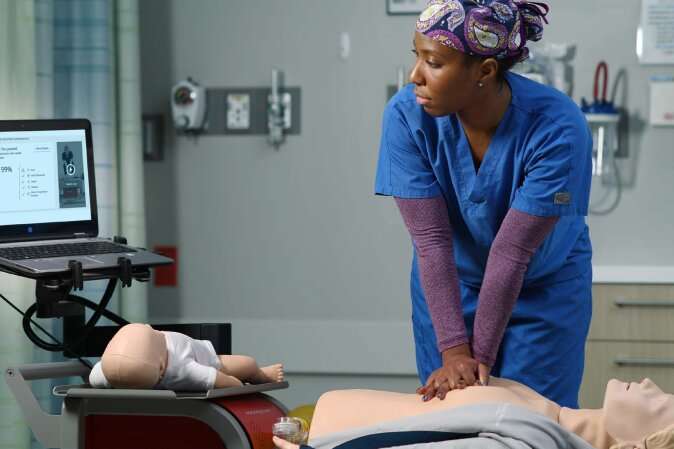
The American Heart Association (Association)—the world’s leading voluntary organization dedicated to a world of longer, healthier lives—and the Heart and Stroke Foundation of Canada (HSFC)—the leading organization in Canada dedicated to fighting heart disease and stroke—announced today the entry of the Association’s digital resuscitation portfolio into the Canadian health care market, leading with Resuscitation Quality Improvement (RQI) 2025. The move signals another milestone in the Association and HSFC’s longstanding collaboration and shared commitment to decreasing disability and death from cardiovascular diseases and stroke.
For decades, the organizations have worked jointly to develop North American emergency cardiovascular care guidelines. Now, the Association and HSFC are making RQI 2025 available to Canadian health care providers, positioning them to achieve, master, sustain and deliver high-quality CPR—the cornerstone for cardiac arrest survival—through more frequent learning experiences. HeartCode Complete 2025, a program combining online instruction with self-directed, hands-on skills testing at a simulation station, will also be offered as an option.
“Traditional Basic Life Support training has been the standard for decades, but studies show CPR skills can decay within three to six months following this instruction,” said Adam Cheng, M.D., American Heart Association volunteer expert and professor in the Departments of Pediatrics and Emergency Medicine at the University of Calgary. “The design of these new programs brings consistency and frequency to resuscitation education, which are key to improving health care providers’ ability to deliver high-quality CPR when responding to cardiac arrest events. Ensuring every patient has the best chance of survival every time means eradicating ‘skills decay’ and building ‘skills mastery.'”
RQI and HeartCode Complete 2025 programs, co-developed by the Association and Laerdal Medical, one of the world leaders in medical simulation and resuscitation training, will be marketed, sold and distributed by RQI Partners. Formed in 2018, the company is a partnership between and service provider for the Association and Laerdal. HSFC, which is responsible for granting resuscitation and first aid training credentials in Canada, will recognize and endorse RQI as an initial training course and an approved prerequisite to its renewal or advanced courses. Course completion cards will be issued by the Association and display both HSFC and the Association’s logos.
“We are excited to collaborate with the American Heart Association to bring these digital resuscitation education options to our hospitals and clinicians,” said David Knechtel, Heart and Stroke Foundation of Canada’s vice president, business development and engagement programs. “Together, we are helping to elevate resuscitation quality improvement initiatives in Canada. We look forward to these globally successful programs supporting health care providers when responding to cardiac arrest events.”
RQI is a proven resuscitation quality improvement program currently used by more than 1,000 hospitals in the U.S. and outside the country. RQI is self-directed, simulation-based mastery learning and performance provided through cognitive and hands-on CPR quality improvement sessions that measure and verify competence. The program employs a “low-dose, high-frequency” model requiring health care providers to complete course assignments in short sessions every quarter.
Offered in English, courses in the Association’s digital resuscitation portfolio are rooted in the True Adaptive learning design, which leverages artificial intelligence. Courses afford personalized instruction tailored to and driven by individual needs, knowledge levels, actions and performance.
“Expanding the reach of these innovative programs and technology to the Canadian health care market offers an opportunity to help advance how hospital educators and administrators teach, and providers learn,” said Clive Patrickson, RQI Partners’ chief executive officer. “Further, how we deliver resuscitation education in the current physical distancing climate must evolve. The American Heart Association’s digital learning solutions provide an alternative pathway to CPR compliance, confidence and competence, leading to improved cardiac arrest patient outcomes.”
Source: Read Full Article
